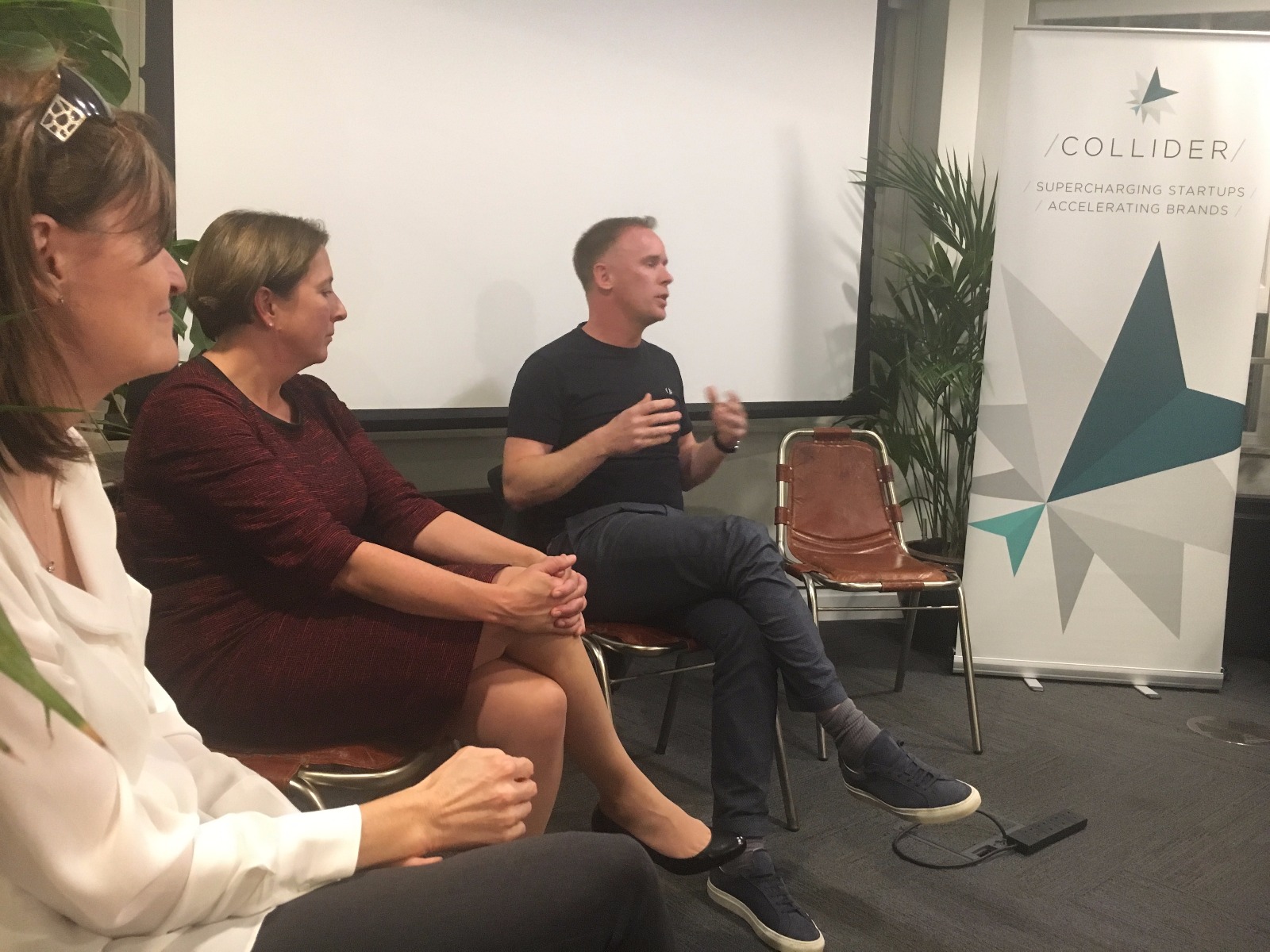I recently caught up with Alexandra Dinsdale, a Digital Planning Manager for Unilever, who is currently a mentor for Collider. We discussed the Collider experience, top tips for startups, and the wider startup community which is blossoming in the UK. 1. Hi Alex, thank you so much for taking the time to have this chat. To start off, please can you explain what you do on a daily basis as Digital Planning Manager for Unilever?
I partner our global brand development teams helping plan strategic marketing programs across digital channels. This includes selecting technology solutions, services and partners, as well as enabling the brands and categories to surface and share best practices.
2. What are your favourite websites or apps at the moment?
I’m a big fan of TheFancy.com, a website and app that brings together crowd-curated fashion, gadgets and places. Like Pinterest, it’s really visual and imagery-based, and I’m continually discovering weird and wonderful things that I want to buy, (but don’t necessarily need!). I also spend a lot of time using Flipboard on my iPad. The variety of stories, news, and content all brought together in a beautiful magazine format makes it very easy to become immersed.
3. What exciting ideas/prospects keep you awake at night?
Unilever’s ambition is to grow the business while reducing our environmental footprint and increase the positive contribution we make to society. For me, the opportunity to make Sustainable Living the centre of a brand’s proposition and find innovative ways to get these messages to our consumers is an incredibly exciting challenge. As technologies rapidly evolve, and consumption of media changes, there’s always a new opportunity to pilot something that’s not been done before.
4. What things might be a clincher when considering a deal with startups?
BRING MAGIC! Seeing real passion, energy and focus in the team. Also to keep it simple. Work out what the company stands for, and stick to this with a clear, targeted proposal.
5. Do you have any major no-nos in terms of pitches?
Do not baffle the audience with figures and science. Understand why your proposition would benefit the recipient in a clear, transparent approach.
6. Accordingly, any things that you like to see during pitches?
To hear why the proposition is new and unique and how it could grow. Startups have the luxury of being able to adapt and change quickly. It would be great to see hunger, passion and agility come through during the pitch.
7. What are your opinions on startups knowing their figures and how exact they should be?
It’s important to have considered the revenue model so they are aware of their base costs, how they are able to monetize, and to be very aware of their audience. Ultimately who the proposition will appeal to. Firm figures aren’t completely necessary as they may change depending on the customer. Being open to further guidance is good.
8. What are your views on the UK startup scene, especially when compared with America?
The UK startup scene is very fresh and exciting. We worked with Betapond on our Waterworks initiative and were really impressed by their work, knowledge and ethos. For certain projects, the flexibility and new thinking startups offer is a great asset, as well as the ability to run fast and respond quickly. The US scene is more mature and better established. There is a huge amount to learn from the US globally.
9. What experience and feedback from mentoring process at Collider?
It has been a tremendously interesting experience. I am relatively new to ventures and startups, so it has been eye-opening in many ways. The startups I’ve mentored have asked great questions and are very receptive to feedback. I’ve loved seeing the updates and progress made between sessions. The video introductions were a great way to meet the startups initially and quickly gain a clear idea of who the team are and their business.
Thank you so much Alex, and we look forward to continuing to work with you.







